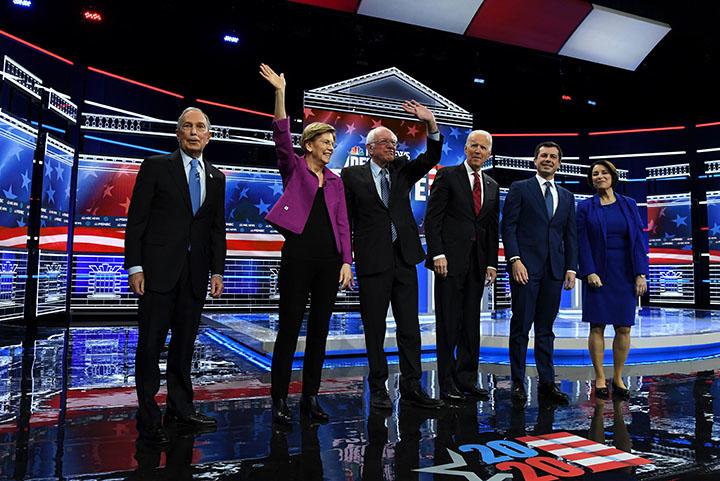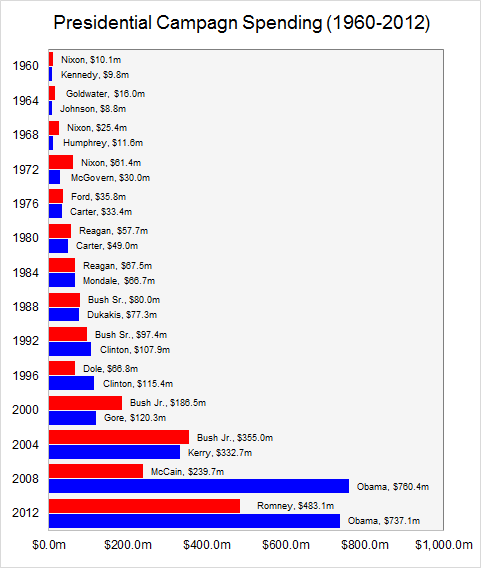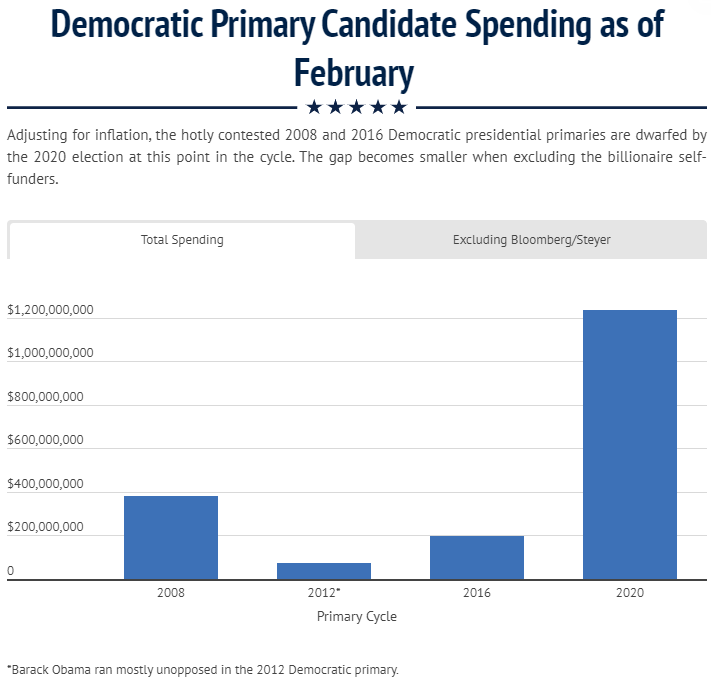The 2020 Democratic Primary Is Already The Most Expensive In History
Authored by Karl Evers-Hillstrom via OpenSecrets.org
With only a sprinkling of delegates pledged to presidential contenders, the 2020 Democratic primary is already the most expensive. Candidates vying for the Democratic nomination have spent more than $1.2 billion, more than they shelled out throughout 2008 or 2016.
At this point in the highly competitive 2008 Democratic primary, candidates spent a combined $313 million, or $382 million when adjusting for inflation. The 2020 primary is roughly six times more expensive than the 2016 race was at this point in the cycle.

Two billionaires, Michael Bloomberg and Tom Steyer, are driving the spending record by self-funding their campaigns at unprecedented levels. They account for more than half of the total spending by primary candidates. But even when excluding the two billionaires, the 2020 Democratic primary is still the most expensive of its kind at this point in the cycle.
The 2020 primary includes more competitive candidates than previous races, and those candidates are unwilling to drop out of the race before Super Tuesday. That comes as Sen. Bernie Sanders (I-Vt.) increasingly becomes the favorite to win the nomination while the more moderate candidates split votes.
Bloomberg, who based his expensive strategy around Super Tuesday, has urged his primary opponents to drop out or risk giving Sanders the nomination. The 2020 Democrats didn’t go along with that plan. Instead, they told Bloomberg to drop out.
That stubbornness is driving up campaign spending. And it’s one aspect that separates the 2020 race from past contests. In 2008, the primary featured two fundraising giants, Hillary Clinton and Barack Obama, and well-funded contenders like Sen. John Edwards (D-N.C.), Sen. Chris Dodd (D-Conn.) and New Mexico Gov. Bill Richardson. However, each of those low-polling candidates ended their campaigns before Super Tuesday.
This time around, the Democratic candidates trailing Sanders still believe they can win despite facing odds that become less favorable with each primary result. Former Vice President Joe Biden says his campaign will rebound with a win in South Carolina. Former South Bend, Ind., mayor Pete Buttigieg launched a massive Super Tuesday fundraising push last week. Sen. Elizabeth Warren (D-Mass.) embraced a super PAC that is supporting her cash-poor campaign ahead of the March contest.
Six Democratic candidates spent north of $60 million through January, according to the most recent filings. Meanwhile, Sen. Amy Klobuchar (D-Minn.), a late riser in the field, spent nearly $31 million.
At its peak last year, the Democratic field included two dozen candidates, each of whom were focused on earning a spot in national debates. The Democratic National Committee required candidates to reach polling and individual donor thresholds to participate in the debates. Those rules forced candidates to spend big on social media advertisements and email lists to attract small-dollar donors, even though they were sure to lose money on those transactions. Steyer spent millions of dollars on Facebook ads that urged users to give just $1.

The DNC scrapped those rules late last month in exchange for stricter polling thresholds and guaranteed spots for those who had already won delegates. That opened the door for Bloomberg — a recent six-figure donor to the committee — to make the debates. The decision was criticized by current and former candidates who had crafted their strategy around the DNC rules. Bloomberg’s campaign, which is entirely funded by the New York billionaire himself, is spending $6 million per day.
Still, it’s the third highest spender in the race who has the best shot at the Democratic nomination. With his dominant win in Nevada, Sanders secured his third popular vote victory in three contests. Sanders’ fundraising haul of $133 million is on par with Hillary Clinton’s $130 million total at this point in 2016, and he has nearly $17 million cash on hand compared to $19 million combined for the rest of the non-billionaires.
Researcher Doug Weber contributed to this report.
Tyler Durden
Thu, 02/27/2020 – 20:25
